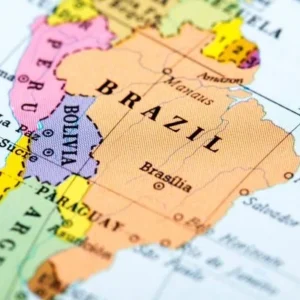In today’s world, digital connectivity is no longer a privilege—it is a necessity for sustainable development. Technology has the power to accelerate the Sustainable Development Goals (SDGs), and the United Nations is calling for an urgent push toward equitable digital transformation. The latest UN Secretary-General’s annual report underscores this urgency, citing the 2024 UN E-Government Survey’s call to “rapidly accelerate digital transformation as an enabler of equitable and sustainable development.”
Last year’s Summit of the Future marked a milestone when countries adopted the Global Digital Compact under the Pact of the Future. This Compact provides a roadmap for governments, businesses, and civil society to collaborate on ensuring that technology supports human rights, well-being, and environmental sustainability. Instead of reinventing the wheel, the Compact builds on years of dialogue and initiatives to create a unified vision of a digital future that works for everyone.
The UN’s Joint SDG Fund is already responding to this call by channeling investments into digital transformation projects worldwide. These efforts are reshaping public services, healthcare, justice systems, and economic opportunities—turning technology into a tool for inclusion and progress.
In Senegal, a first-of-its-kind e-justice system is being piloted in Dakar, allowing citizens to request judicial documents, pay fees, and track their cases online. This initiative, led by four UN agencies, promises faster and more transparent access to justice, especially for marginalized groups and women.
In Costa Rica, women are driving community innovation labs across Atenas, Palmares, and Sarchí. Supported by UNDP, UN-Habitat, and UN Women, these labs combine technology, entrepreneurship, and upskilling to boost economic security. The result is not only stronger local businesses but also more inclusive municipal policies, such as a new Gender Equality policy in Sarchí.
Healthcare is being revolutionized in El Salvador and Kyrgyzstan, where telemedicine platforms and digital health records are connecting remote patients to doctors. These tools are improving maternal health, early disease detection, and chronic disease management, ensuring that even those in isolated areas receive timely and effective care.
In Kenya, the DigiKen programme is equipping youth with digital skills to foster entrepreneurship and green jobs. Through Digital Innovation Hubs, young leaders are using technology to tackle local challenges, from improving agriculture to creating new businesses, proving that digital progress can drive employment and innovation.
Meanwhile, Mongolia’s e-Mongolia initiative has expanded access to public services online, reducing bureaucracy and corruption while saving time and money for citizens. Similarly, on the remote island of Tonga, a new Digital Hub now provides high-speed internet, online education, e-banking, and market access for local entrepreneurs, transforming both classrooms and livelihoods.
These examples show that digital transformation can either bridge or widen divides. The difference depends on whether governments and international partners invest in inclusive, rights-based solutions. As the UN General Assembly meets this week, advancing the Global Digital Compact will be a top priority, with the clear message that the question is no longer whether to go digital, but how to ensure a digital future that delivers for everyone, everywhere.






